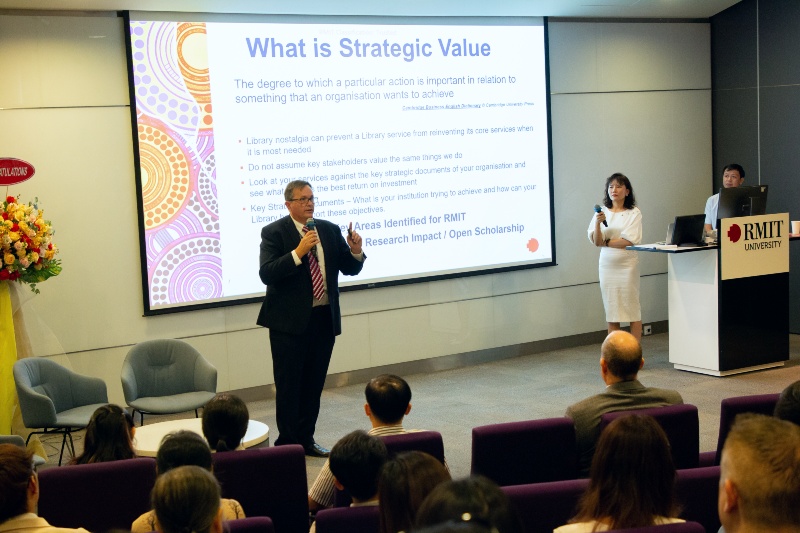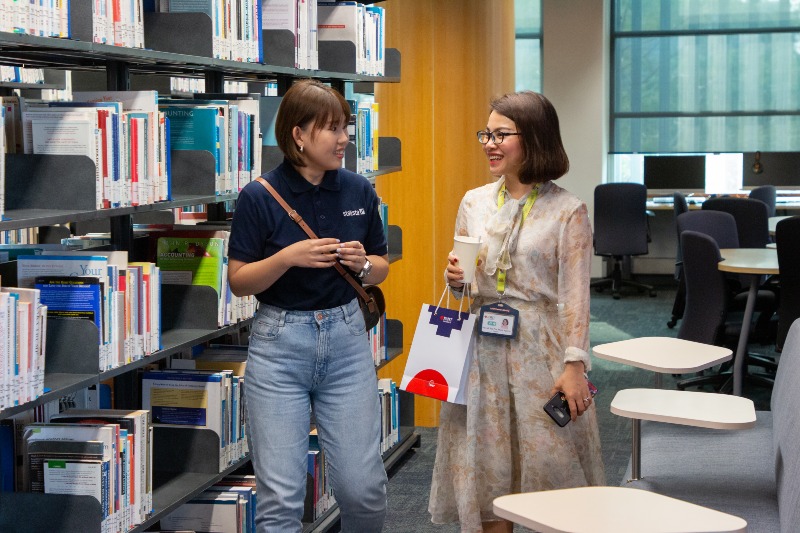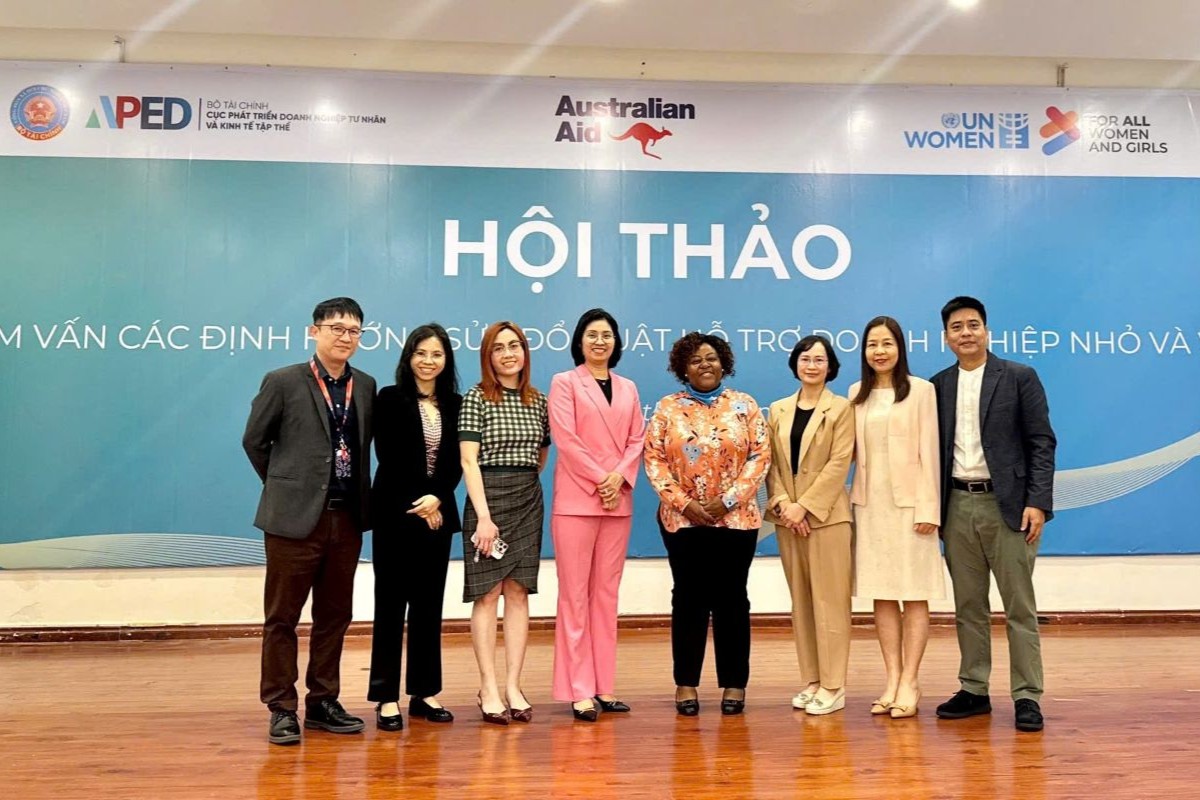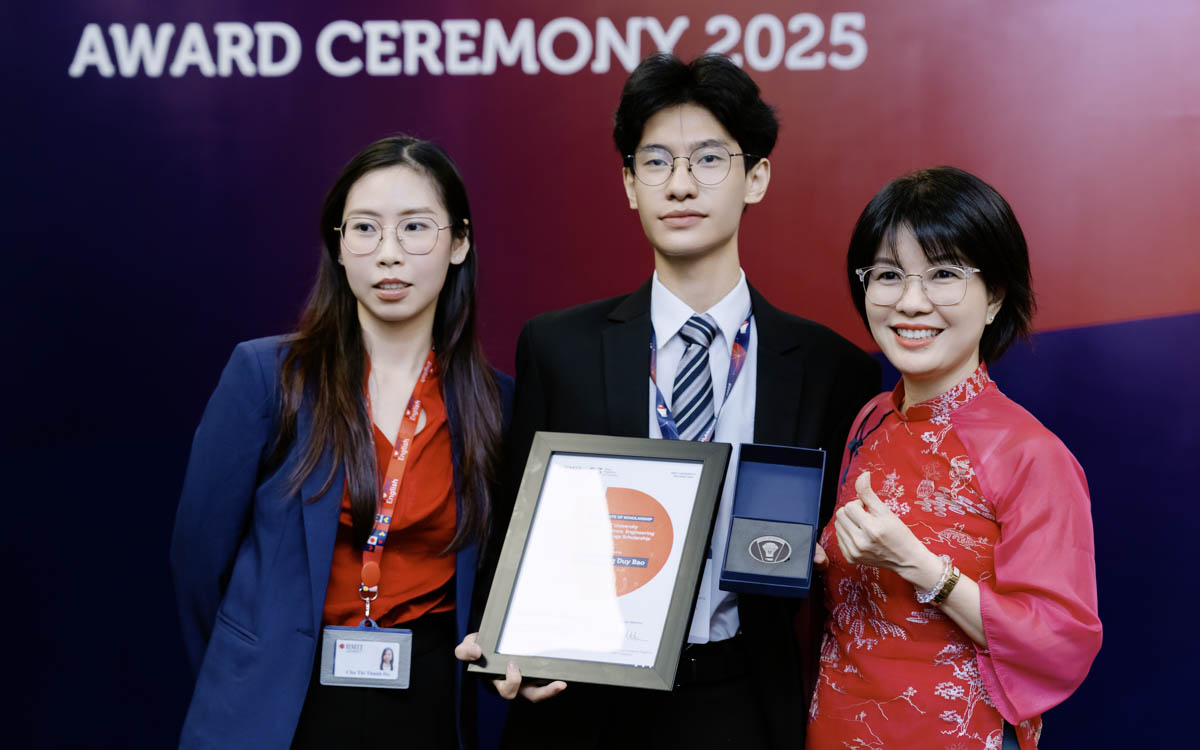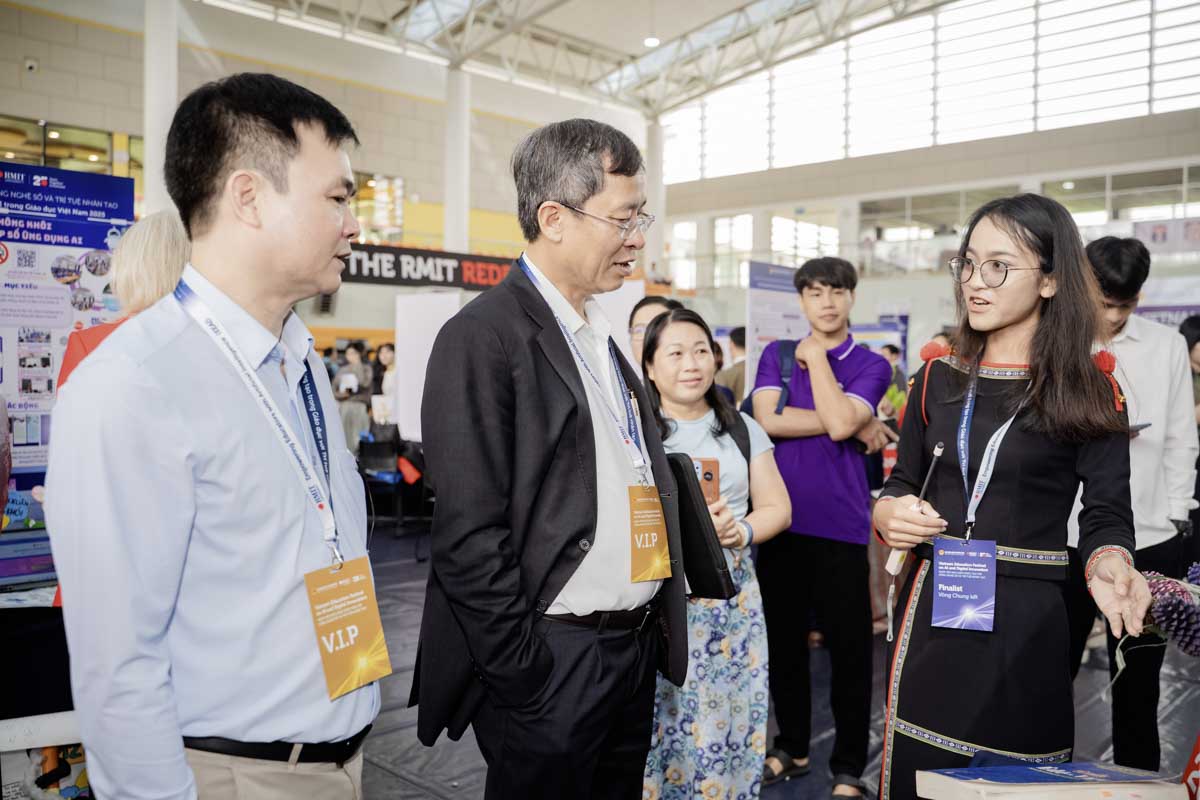Mr Howard suggested that academic libraries can start their AI journey with four key tools: Tome – to create presentations from keywords, OpenAI – ChatGPT – to create text from keyword, Glasp – to curate ideas and sources, and Pollinations – to generate images with keywords.
RMIT presenters at the conference also shared experience in how Open Educational Resource (OER) was exploited and adopted to support teaching and learning activities at its Vietnam campuses.
OER is a type of resource that offers online access and is free of use to teachers and students all over the world. RMIT Vietnam Library launched OER initiative to raise awareness and conducted training workshops for library staff, academics, and students since 2016.
To start OER project, it is essential to develop OER guide, raising awareness among potential users, upskilling library staff and lecturers, as well as embedding OER into library activities.
However, it is not always straightforward for academic libraries to go digital.
“We need to ensure that we maintain high levels of personalised support for students. Having a skilled library staff member behind our digital services is absolutely critical. Skilled library staff ensure we get the best digital outcomes for students, researchers, and teachers.” Mr Howard added.
Student-centric activities: a sustainable model for future use
According to Mr Rex Steiner, RMIT Vietnam Senior Manager of Library and Digital Services, encouraging students to get involved has multiple benefits.
“It will help students be aware of all library activities, services, and resources, and keep them updated on current events. Especially, it lets students recognise the various benefits when they are familiar with library services and resources.”
Student-centric model at RMIT Vietnam library is adapting latest changes and fresh content, in addition to embracing diversity and inclusion.
Over the past two years, the University has successfully organised events with a student-centric approach such as ‘Get to know your academic library forum’, ‘Fantastic books: A book review contest’, and ‘Welcoming newbie series’.

